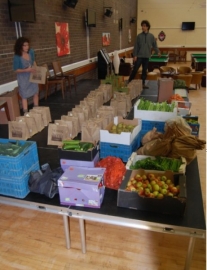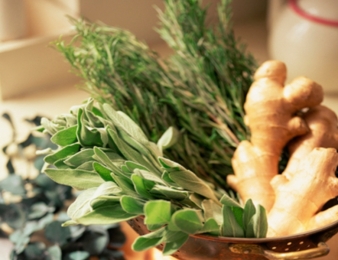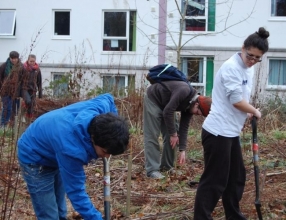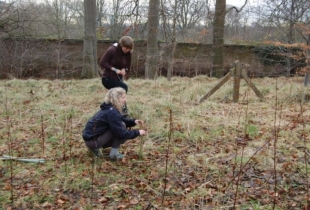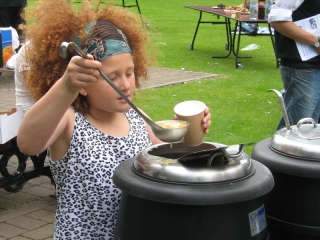By Ela Nowakowska.
Being a student often means we have to watch the pennies closely. Cruising through supermarkets looking for bargains and discounted produce that will feed us until the next chunk of the student loan arrives.
It is hard to associate with the industry behind the mass-produced Cornflakes and the cheapest chicken breast with the camouflage of glaring lights in pristine warehouses.
But it does not have to be this way.
Taking a step back and giving our food some thought is not actually that hard and Aberdeen is a great place when it comes to local produce. Located by the sea it offers a wealth of seafood and fresh fish as well as regionally grown vegetables and fresh dairy products.
We do not even need to leave campus to make the make the most of the shopping opportunities available through the Veg Bag scheme and the associated student organic Fairtrade Shop. Both are outcomes of ingenuity and have led to regular weekly shopping opportunities for not only the university students and staff but are also gaining recognition from the surrounding community too.
Every Tuesday at Alfies Café, Butchart Centre, between 12 and 2pm all are welcome to purchase a bag of ethically and organically grown fruit and vegetables delivered from Lembas farm located just south of Aberdeen (lembasorganics.co.uk). The student shop (campus Chaplaincy on High Street, every Wednesday 12-2pm) obtains its stock from the Green City co-operative in Glasgow, which specialises in the wholesale of organic and ethical foodstuffs such as pulses, snacks, flour, coffee and many others. And they are all dirt cheap!
As far as real grocers in Aberdeen are concerned, do not waste your precious time trying to find one – you will not. But do not fret for there are several decent spots where you can get you hands on fresh local produce. That includes a little weekly farm stall on The Green (take the steps down from Union Street, beside the Thorntons Chocolate shop) where every Friday you will find vegetables, plants and eggs produced locally on a farm near Dyce.
D Nicoll Fishmonger on 243 Rosemount Place is a lovely little shop where you cannot only grab some fresh mackerel or a few tasty little sardines but also get your free-range eggs and some hand-made preserves, all local and on a small and unpretentious scale. If you fancy something a little closer to home then why not use the fishmonger who comes to you? A white van appears on the university campus every Thursday with all the fishy basics you can think of, at very affordable prices too!
A great way to support local producers in and around Aberdeen is to visit the Farmers’ Market
There is another fishmonger in Aberdeen, located in the indoor market on Market Street where you can get the sense of what shopping in this merchant city would have been like several decades ago. The people behind the counter know their trade well; they’ll be able to advise you on the best fish for your Indian Korma and home-made fishcakes.
While at the market, why not pop across the hall to the butcher’s stall which has plenty of regional meats of high quality. Surely you are already dribbling at the thought of your Friday night Bolognese with a bottle of well-chilled lager on the side. This stall also offers fruit and vegetables so you can purchase your five-a-day here too.
Aberdeen hosts a number of good quality butchers providing succulent, delicious, local meat including Laidlaw (1-3 McCombies Ct), Thomson’s Quality Butchers (8-10 Market Street) and A&M Butchers (49 Justice Street) just to mention a few.
A great way to support local producers in and around Aberdeen is to visit the Farmers’ Market, which takes over the cobbles of Belmont Street twice a month (every first and last Saturday of the month). Here you will find fresh local vegetables, free range eggs and cheeses. Often you will also come across a lovely bakery unit with a rather satisfying selection of artisan breads, buns and oatcakes…mmm…get those scrumptious cheeses and a bottle of bramble wine from the regional Cairn O’Mohr Winery (East Inchmichael, Errol, Perthshire PH2 7SP) for your weekend treat.
For more local food questions and queries contact the Climate Change Project at c.lampkin@abdn.ac.uk.
